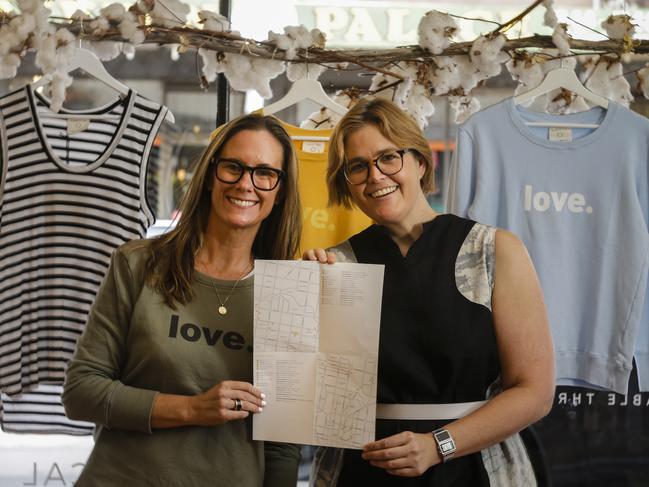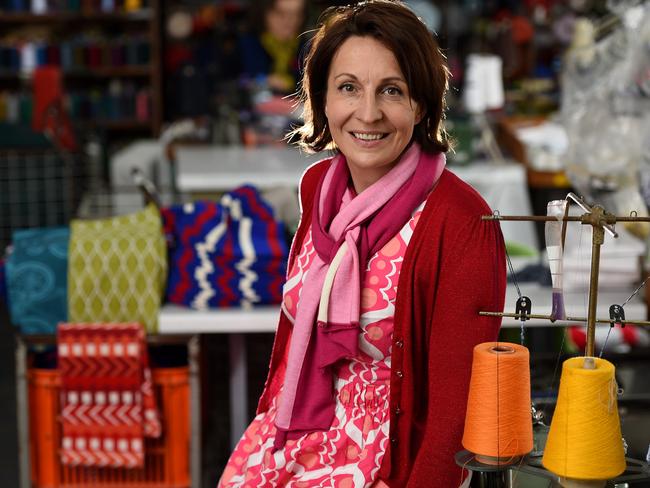Ethical Clothing Australia’s guide to where you can buy sweatshop-free, Aussie-made clothes
Chances are what you are wearing right now was made in a sweatshop - in Melbourne. Ethical Clothing Australia’s latest project is making it easier to become more savvy about buying clothes free of sweatshop labour.

Inner East
Don't miss out on the headlines from Inner East. Followed categories will be added to My News.
How can you ensure your clothes weren’t made in a sweatshop?
Ethical Clothing Australia has created a guide mapping out where in Melbourne’s CBD, Boroondara, Stonnington, Moreland and Darebin you can buy Australian-made brands that adhere to ethical work practices.
Labels listed in the Guide to Ethical Shopping in Melbourne include Akubra, Carla Zampatti, Cue, HoMie, Nobody Denim, Otto & Spike and Perri Cutten, and where you can find them.
RELATED NEWS
HOW YOU CAN BECOME AN ETHICAL SHOPPER
FASHION LABELS DRAGGING FEET ON SAFETY ACCORD
WORKSAFE VICTORIA CLAIMS REVEAL OUR MOST DANGEROUS INDUSTRIES
All have Ethical Clothing Australia (ECA) accreditation, a rigorous process which audits each step of a company’s supply chain to ensure all workers receive their full entitlements.
Sweatshop-free brands can be found at select stores and shopping centres ranging from Emporium, Melbourne Central, David Jones and Myer to smaller boutique stores such as Organic Crew, Viktoria & Woods and Arnsdorf.
Organic Crew founder Mel Lechte said she was proud of the store’s transparency about its supply chain.
“By starting small, we were able to do everything right and tick every box from seed to shop floor. We know exactly where our cotton fibres come from,” Ms Lechte said.
“I chose Malvern as my first store location because I had grown up in the area and I know customers here want good quality casual basics that have also been ethically made.”
Exploitation of garment workers continues to fuel fast fashion around the world.
The 2013 collapse of the Rana Plaza garment factory in Bangladesh, which led to the death of 1134 people, shocked global consumers about the unregulated outsourcing of labour.
The tragedy led to the Bangladesh Fire and Building Safety Accord and rising awareness about conditions in garment factories.
Oxfam’s Made in Poverty report recently revealed women in Bangladesh and Vietnam making clothes for some big Australian brands could earn as little as 51 cents an hour.
The majority of women interviewed for the report were not earning a living wage and nine out of 10 could not afford enough food for themselves or their families.
The study found paying women living wages would add just one per cent, on average, to the retail price of a piece of clothing.
But it’s not just overseas garment workers who are exploited.
Australians — often migrant women working from home in unsafe conditions — are also affected.

ECA scrutinises Australian-made brands.
The Guide to Ethical Shopping in Melbourne was released to coincide with the start of the Virgin Australia Melbourne Fashion Festival this week.
ECA national manager Angela Bell said the guide had been created because of an increased interest in ethical clothing.
“The latest research and reports on the fashion industry all point to the rise of the conscientious consumer — people who are wanting to know more about where their clothing has come from and that it’s been ethically produced,” Ms Bell said.
“It is good that we have fashion labels voluntarily undertaking the accreditation process and committing to an independent audit so that their customers can know it’s been made the right way.”
Australian Council of Trade Unions president Michele O’Neil said ECA’s work was critically important in ensuring workers were treated fairly and reputable employers could be recognised.
Minister for Creative Industries Martin Foley said the map would help people make better choices and learn more about where their clothes were coming from.
To find the map visit ethicalclothingaustralia.org.au/melbourne-map
MORE NEWS


